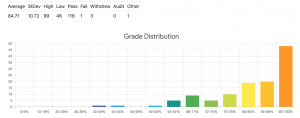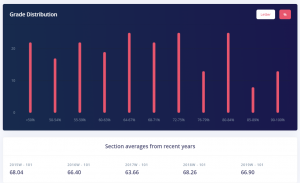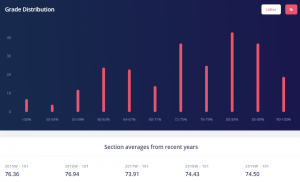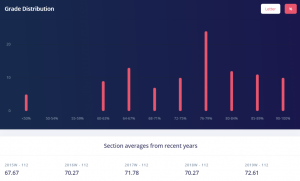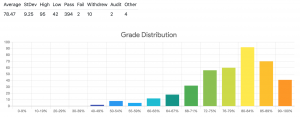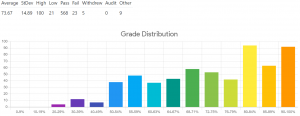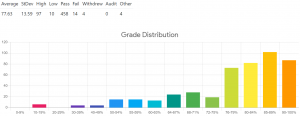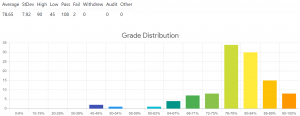This course will have you rethinking about what you know about the nervous system! BIOL 371 is a neurobiology course that focuses on neurons, their corresponding action potentials, and neurohormones.
FORMAT OF THE COURSE
Arghh…. it’s an 8AM class but it is definitely worth waking up for (an early start to the day is always nice). There live lectures are all recorded so one could always sleep in. The non-exam marks are broken down into pre-reading quizzes and literature worksheets all submitted on Canvas. The quizzes are pretty straightforward and all the answers are found in the readings. They usually include a “Have a Guess Question” which is more of a thought exercise and is marked for completion rather than correctness. There were 5 neurobiology papers we had to read and 5 classes dedicated to helping us decipher these papers. The paper lectures were really guided and helpful and the subsequent literature worksheets were only marked for completion!
In terms of exams, there were 2 midterms (20% each) and one final (40%). However, there was a reweighting policy implemented in the middle of the term that reduced the weight of the midterms if we did better on the final. Exam format is a mixture of true/false and open-ended responses. What I really love about this course is that they adjust the marking scheme to accommodate students who come up with a reasonable answer that wasn’t considered in the scheme before. The teaching team was really careful about the exam design and were not shy about taking out unfair questions or allowing more flexibility for ambiguously worded ones.
GPA 🙂 OR 🙁
I really liked this course so I did really well; however this course is not a GPA booster. However, this course isn’t a GPA killer either even though the content is quite difficult. The content is difficult because the course takes an approach such that we’re looking from the lens of a researcher. We’re tasked to try to prove why a certain fact in the textbook is true by looking at the experiments that were done (eg. how did we know that ion channels were involved in the action potential rather than just simply being told they are involved). The course average was 76 when I took it.
verdict? to take or not to take
A lot of the course is interpreting data from the primary literature, so if you really enjoy reading about research I would definitely take this course! Even, if you struggle with interpreting data-heavy slides, the professor, Dr. Irene Ballagh, is super approachable and always willing to help (one of the best professors I’ve had at UBC).

